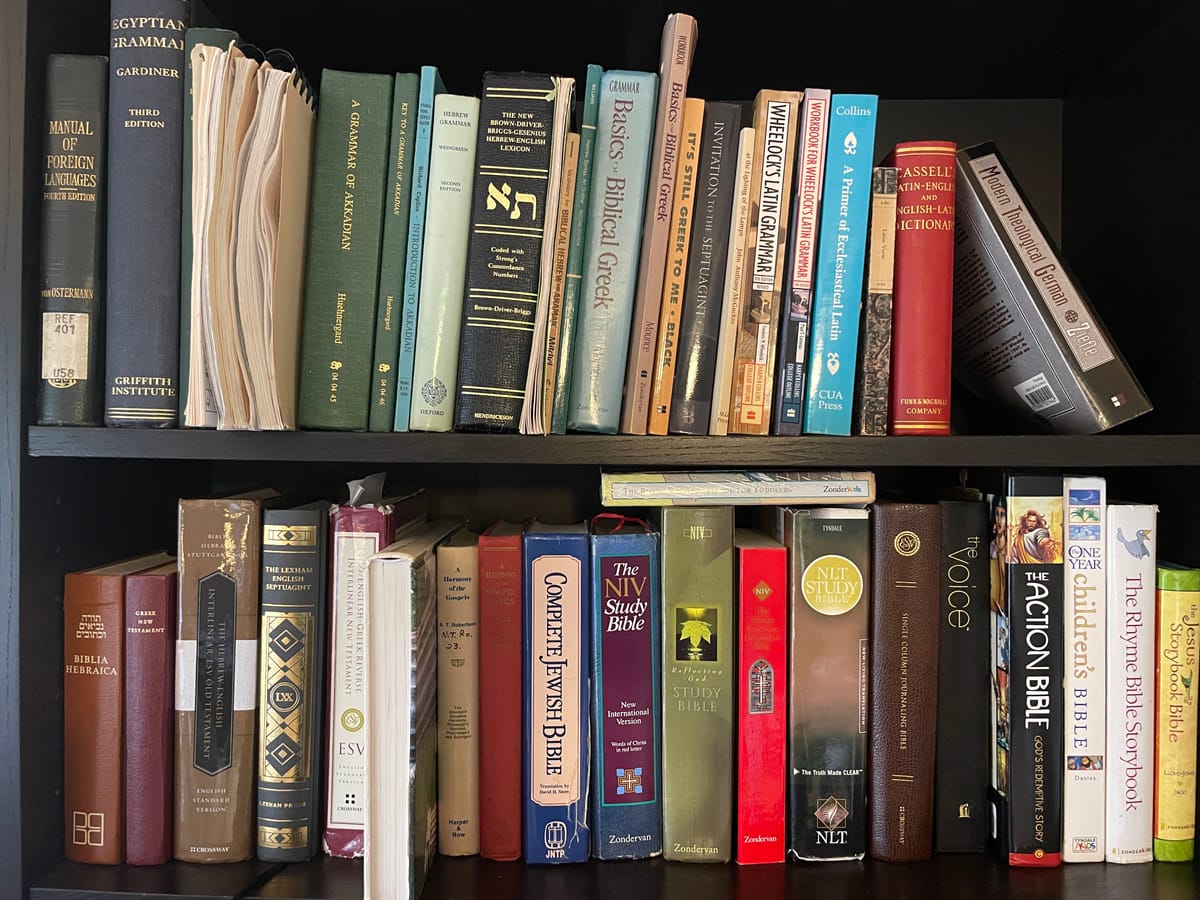1 Corinthians 12.31 to 13.13 — my alteration of the Phillips version

When it comes to looking for a functional/dynamic equivalent translation of the "love" chapter — perhaps for reading at a wedding where lots of Nones/Remixed may be in attendance — the 1972 J. B. Phillips version is actually quite good but I do have several concerns listed here, followed by my complete rendering:
Preface Concerns:
- For those concerned about whether Phillips's work should be considered a paraphrase or a translation, here's an interesting read: https://www.jbphillips.org/blog-page/the-two-phillips-versions-1958-and-1972
- It is helpful for audiences to hear 12:31 instead of simply starting at 13:1 — remember, enumerated chapter divisions were not part of the original documents.
Primary Concerns for 1 Cor 13:
v.5 — OFFENSES is better than Phillips's EVIL
v.6 — Phillips's assonance of gloat and glad is nice in "or gloat over the wickedness of other people. On the contrary, it is glad with all good men when truth prevails" but exegetically this rendering is to be preferred: "It finds no joy in what is wrong. On the contrary, it rejoices with others when truth prevails."
v.8 — Especially for biblically illiterate audiences who are not aware of the treatment of TONGUES in the preceding 12th chapter, understanding the word TONGUES will be problematic. While any re-wording of this may be awkward and clumsy, instead of Phillips's "if there are TONGUES the need for them will disappear," something like "if there is the gift of communicating in strange languages, the need for it will disappear" is a more helpful clause and yet retains high fidelity exegetically, regardless of one's hermeneutics about the lexeme TONGUES.
v.10 — Is the contrast between the COMPLETE and INCOMPLETE in v.10 clear? I've replaced Phillips's "and when the complete comes, that is the end of the incomplete" with "But when everything is brought to completion, then we will not need these gifts that are incomplete."
v.11 — Is CHILDISH in v.11 conveyed in a way that does not unintentionally contradict Jesus's command to be like a child? Phillips does a fair job here.
v.12 — I've replaced Phillips's "At present we are men looking at puzzling reflections in a mirror. The time will come when we shall see reality whole and face to face!" with "At present things are enigmatic as if we are looking in a blurry mirror. But the time will come when we shall see with the clarity of being face-to-face."
Additional Concerns — not effected in my rendering:
1. Does the rendering of LOVE convey that Paul is talking about Godly self-sacrificial agape love? Is it possible that the old-fashion rendering of CHARITY actually serves a 21st century audience better?
2. Does the rendering of FAITH/BELIEVE — which appears three times (v.2, 7, 13) — convey that Paul is talking about TRUST? Phillips does this at least once, in verse 7.
Paul's First Letter to the Church in Corinth, chapter 12 verse 31 to the end of chapter 13 (transl. J. B. Phillips 1972, alt. Harry K. Zeiders 2021)
May the reading of this Word be blessed by the Holy Spirit and not return void.
12:31 You should set your hearts on the highest spiritual gifts, but I will show you what is the highest way of all.
13:1 If I speak with the eloquence of men and of angels, but have no love, I become no more than blaring brass or crashing cymbal.
2 If I have the gift of foretelling the future, and hold in my mind not only all human knowledge but the very secrets of God, and if I also have that absolute faith which can move mountains, but have no love, I amount to nothing at all.
3 If I dispose of all that I possess, yes, even if I give my own body to be burned, but have no love, I achieve precisely nothing.
4 This love of which I speak is slow to lose patience—it looks for a way of being constructive. It is not possessive: it is neither anxious to impress nor does it cherish inflated ideas of its own importance.
5 Love has good manners and does not pursue selfish advantage. It is not touchy. It does not keep account of offenses.
6 It finds no joy in what is wrong. On the contrary, it rejoices with others when truth prevails.
7 Love knows no limit to its endurance, no end to its trust, no fading of its hope; it can outlast anything.
8 It is, in fact, the one thing that still stands when all else has fallen. For if there are prophecies they will be fulfilled and done with, if there is the gift of communicating in strange languages, the need for it will disappear, if there is knowledge it will be swallowed up in truth.
9 For our knowledge is always incomplete and our prophecy is always incomplete.
10 But when everything is brought to completion, then we will not need these gifts that are incomplete.
11 When I was a little child I talked and felt and thought like a little child. Now that I am a man my childish speech and feeling and thought have no further significance for me.
12 At present, things are enigmatic as if we are looking in a blurry mirror. But the time will come when we shall see with the clarity of being face-to-face. At present all I know is a little fraction of the truth, but the time will come when I shall know it as fully as God now knows me!
13 In this life we have three great lasting qualities—faith, hope and love. But the greatest of them is love.
The Word of the Lord.
Thanks be to God!




